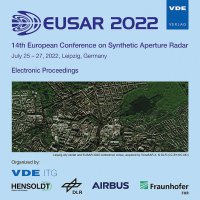On the analysis of the DInSAR time series retrieved through the P-SBAS approach: a focus on possible bias
Konferenz: EUSAR 2022 - 14th European Conference on Synthetic Aperture Radar
25.07.2022 - 27.07.2022 in Leipzig, Germany
Tagungsband: EUSAR 2022
Seiten: 4Sprache: EnglischTyp: PDF
Autoren:
De Luca, Claudio; Manunta, Michele; Onorato, Giovanni; Lanari, Riccardo (IREA – CNR, Istituto per il Rilevamento Elettromagnetico dell’Ambiente, Napoli, Italy)
Casu, Francesco (IREA – CNR, Istituto per il Rilevamento Elettromagnetico dell’Ambiente, Napoli and Milano, Italy)
Inhalt:
We investigate the presence of possible bias affecting the deformation time series retrieved through the advanced differential SAR interferometry (DInSAR) algorithm referred to as Parallel Small BAseline Subsets (P-SBAS) approach. To do this we summarize the main results of a case study, originally presented by De Luca et al., 2021, which is based on the extensive analysis of a Sentinel-1 dataset relevant to an area in Sicily (southern Italy). The presented analysis allow us to show that the deformation time series obtained through the P-SBAS approach do not present significant bias, thus clarifying that there is no need to exclude the short temporal baseline interferograms when dealing with advanced DInSAR analyses. Moreover, our results confirm that the small baseline interferograms are beneficial in order to mitigate the impact of phase unwrapping errors and to maximize the coherent pixels spatial density of the achieved results.


